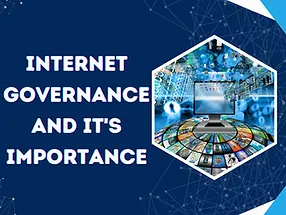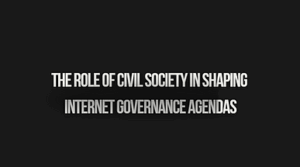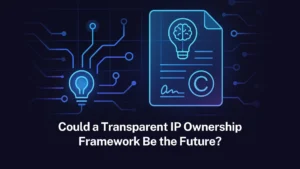The Internet has so much possibility, but it’s being overtaken by people who have less-than-noble intentions. Few are wise enough to ask whether Internet governance matters.
What Is Internet Governance?
Internet governance is the process of making decisions and policies for the Internet. Among many things, it includes:
– Developing principles for how the Internet should operate; and
– Creating and enforcing laws and regulations that govern online activity.
Internet policies affect governments, private companies, and citizens. That’s why we all have a role to play in shaping the future of the internet. It can be a complex discussion. But it is ultimately it is important for pushing progress, safety, democracy, and economic prosperity.
The internet relies on both logical and physical infrastructure (like cables and Internet protocols).
Institutions like the Internet Engineering Task Force (IETF) and the Internet Corporation for Assigned Names and Numbers (ICANN) work together to create uniform protocols and standards. They also manage essential functions like the Domain Name System (DNS) and IP addresses.
The Multistakeholder Model of Internet Governance
In the Multistakeholder Model, all interested parties have a say in how the internet is run. This includes governments, businesses, civil society groups, and individuals. Together, these stakeholders work to create a democratic and inclusive approach to governing the online space.
Governments enact and enforce laws related to the Internet. They also work with other institutions on matters around cybersecurity, privacy, and internet freedom.
International organizations like the United Nations and UNESCO help set global standards for the internet. They also facilitate cooperation between different countries.
Private companies, particularly in telecommunications, play a huge role in internet governance: they develop and implement the technologies that support the Internet infrastructure. They also own and control a lot of the data that circulates online.
Finally, civil society organizations represent the interests of ordinary people when it comes to internet governance. Organizations like the Number Resource Society (NRS) push for transparency and accountability, as well as access to information and communication technologies for all.
Internet Governance and Regional Internet Registries (RIRs)
Domain names and IP addresses are essential to get on to the Internet. Without those digital assets, it’s impossible for any device or website to connect to the Internet.
Regional Internet Registries (RIRs) manage domain names and IP addresses. There are five of them in the world: each of which has their own geographical jurisdiction.
Not all RIRs are the same — some are more democratic and transparent. Some tend to make policies and decisions behind closed doors.
It is nearly impossible to regulate RIRs — they are independent organizations that operate on multiple countries. However, you can have a say in how RIRs are run.
There are a few ways you can make an impact. First, be aware of the policies that your RIR implements. These policies can affect how you can access the Internet and what kind of information reaches you.
Second, you can participate in RIR elections. By putting the right people in office, you can have an enormous impact on shaping a democratic Internet.
The Key Issues in Internet Governance
Governance refers to how a system is managed and controlled. In the context of the internet, it means how decisions about its future are made, including issues such as security, freedom of expression, and privacy.
There are some key issues in internet governance, which are constantly changing and evolving. Some of the most important ones include:
– The role of governments in regulating the internet
– The impact of technology on society and the economy
– The protection of online privacy and data
– The fight against online censorship and surveillance
What You Can Do to Get Involved in Internet Governance
There are a lot of things you can do to participate in internet governance. The options vary depending on your level of expertise and comfort.
You could start by educating yourself on the issues and following the debates as they happen. You could also get involved in your local community, attending public meetings and engaging with your elected officials.
You could also try contacting tech companies or online platforms and asking them how they’re planning to protect user data and champion free speech.
Finally, you can join civic organizations like NRS to express your opinion on policies that shape the Internet, especially with policies that RIRs implement.
The Future of Internet Governance
Effective governance becomes more important to us as the Internet becomes more embedded into our lives.The future of internet governance is always up for debate. There are a lot of different voices to consider, and no one solution will please everyone.
But it’s essential that we continue to discuss and debate these issues so that we can make sure the internet remains open and accessible to everyone.
Make your voice heard on the topics that matter most to you. Speak up on social media, attend local and global forums, and tell your elected officials that you want them to prioritize Internet freedom in their decision-making.





Pingback: - NRS
Pingback: Corporate Influence on Internet Governance - NRS
Pingback: 5 internet governance challenges and constraints. - NRS